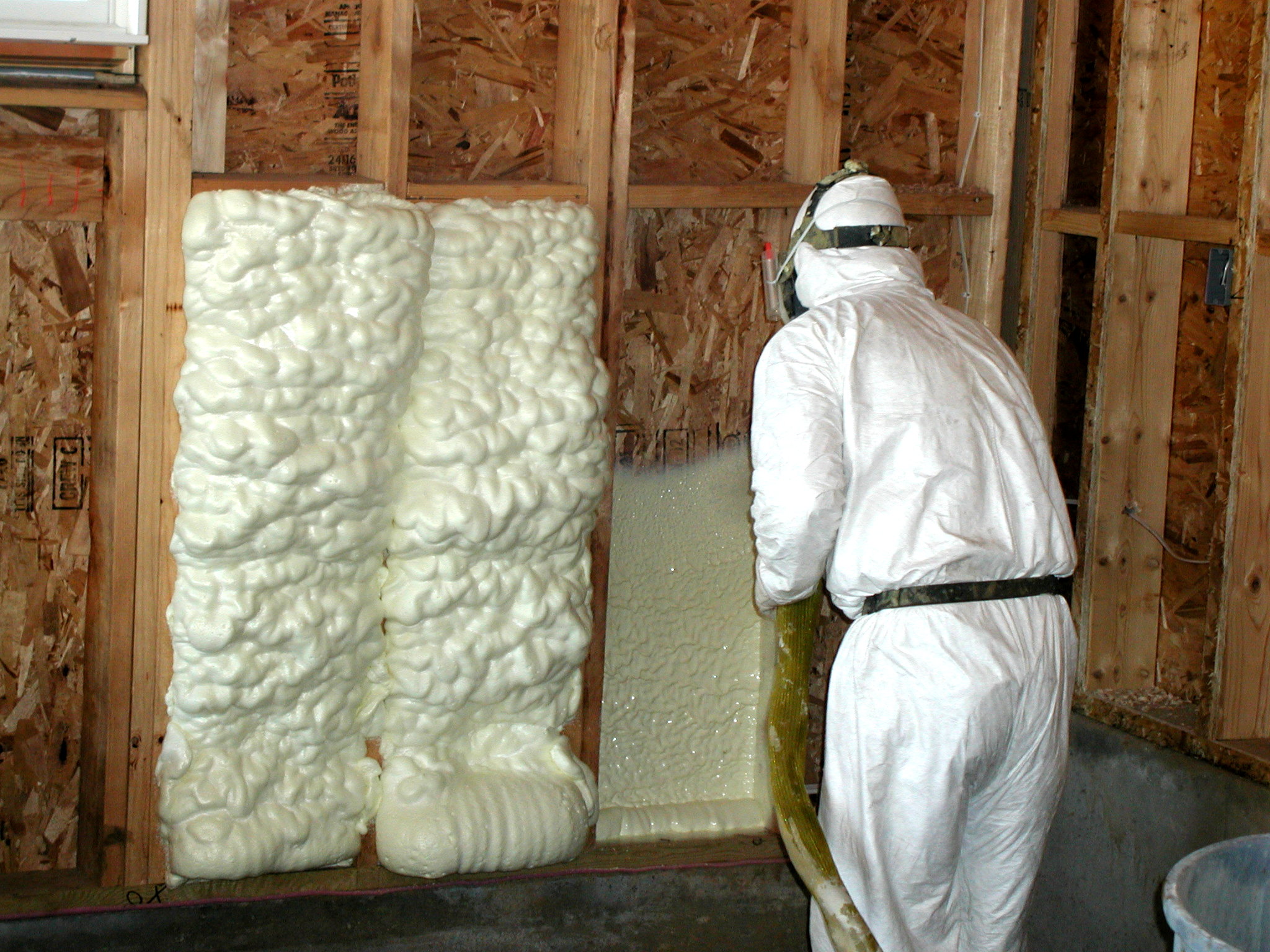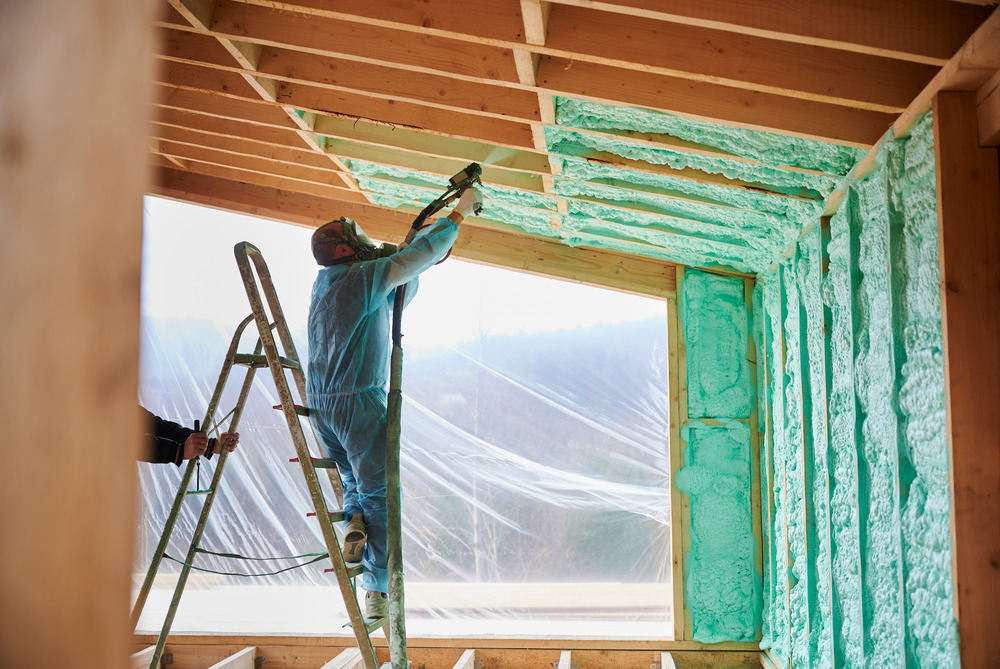Top Applications of Spray Foam for Residential and Commercial Properties
Top Applications of Spray Foam for Residential and Commercial Properties
Blog Article
Spray Foam: The Ultimate Service for Air Sealing and Insulation
Spray foam insulation has actually emerged as a leading service for effective air sealing and thermal insulation, offering an unique mix of homes that set it apart from traditional methods. Recognizing the complete range of its benefits, installment procedures, and comparisons with other insulation kinds is critical for making notified decisions.
What Is Spray Foam?
Spray foam is a versatile insulation material that incorporates the principles of air sealing and thermal resistance to boost power effectiveness in buildings. Made up mostly of polyurethane or other comparable substances, spray foam is applied as a fluid that broadens upon contact with surface areas, producing a solid, continual layer of insulation. This special building enables it to fill voids, fractures, and voids that typical insulation products may ignore, offering a superior air seal.
There are 2 major kinds of spray foam: open-cell and closed-cell. Open-cell spray foam is lighter and more adaptable, offering superb audio absorption and a lower R-value per inch - Spray Foam. On the other hand, closed-cell spray foam is denser, giving a greater R-value, dampness resistance, and added architectural integrity to constructing elements
The application procedure generally includes customized devices, making certain a smooth application that complies with numerous substrates, consisting of wood, concrete, and metal. This adaptability makes spray foam appropriate for both brand-new constructions and retrofitting existing frameworks. Its ability to produce an impermeable barrier dramatically contributes to lowering energy usage and boosting interior air quality, thereby making it a recommended choice amongst contractors and house owners alike.
Benefits of Spray Foam Insulation
Among one of the most significant advantages of spray foam insulation is its phenomenal capacity to create a continuous air barrier, which efficiently minimizes energy loss. Unlike standard insulation products, spray foam broadens to fill up splits and spaces, making certain that air leak is significantly decreased. This characteristic not only enhances energy efficiency yet likewise brings about lower utility expenses in time.
Additionally, spray foam insulation supplies remarkable thermal resistance, adding to a much more steady interior atmosphere. Its high R-value per inch permits effective insulation in confined rooms, making it ideal for attic rooms, wall surfaces, and crawl rooms. The moisture-resistant residential properties of spray foam assistance prevent mold and mildew and mildew growth, advertising healthier living conditions.
Another critical advantage of spray foam insulation is its sound-dampening high qualities (Spray Foam). It effectively lowers noise transmission in between spaces, creating a quieter and extra comfortable home setting. The longevity of spray foam also sticks out, as it does not sag or resolve in time, keeping its performance throughout its life-span
Exactly How Spray Foam Works
Recognizing how spray foam insulation functions is vital for valuing its efficiency in air securing and thermal resistance. Spray foam insulation includes 2 primary parts: isocyanate and polyol resin. When these elements are combined, they undergo a chain reaction that causes the material to increase swiftly, developing a thick foam that loads splits, cavities, and gaps.
As the foam expands, it sticks to surface areas, forming a closed seal that dramatically decreases air infiltration. This particular makes spray foam insulation very effective at stopping drafts and moisture penetration, which can result in power loss and damages with time. In addition, the closed-cell variant of spray foam uses exceptional thermal resistance due to its inflexible framework, successfully decreasing heat transfer.
The one-of-a-kind buildings of spray foam permit it to adhere to irregular surface areas, making certain extensive protection and a seamless barrier. Consequently, spray linked here foam insulation not only enhances power efficiency but also contributes to improved interior air top quality by lowering the buildup of irritants and toxins. Ultimately, understanding the auto mechanics behind spray foam highlights its function as a premium option for insulation and air securing in both commercial and property applications.
Setup Process Overview

Prior to installation, the area has to be effectively cleansed and prepped, guaranteeing that surface areas are free from wetness, dust, and particles. This step is crucial since impurities can compromise bond and total efficiency. Once the area is prepared, the application includes mixing both elements of the spray foam, which broadens upon call and fills gaps efficiently.
Trained experts ought to carry out the setup, using specific equipment to ensure uniform coverage and optimal density. Safety safety measures, including wearing protective gear and making sure correct air flow, are essential Clicking Here during this process. After application, the foam usually remedies swiftly, creating a strong obstacle that improves energy effectiveness.
Comparing Spray Foam to Traditional Insulation
When evaluating insulation alternatives, spray foam insulation stands out in comparison to traditional products such as fiberglass and cellulose. Unlike fiberglass and cellulose, which can permit air seepage, spray foam expands upon application, filling up gaps and holes to create an impermeable seal.
In addition, spray foam supplies a higher R-value per inch than standard insulation types, using even more efficient thermal resistance in a thinner account. This characteristic is specifically advantageous in rooms with limited dental caries depth. Moreover, spray foam is immune to moisture and mold and mildew growth, which can be a considerable worry about cellulose and fiberglass, especially in moist environments.
Nevertheless, spray foam insulation normally carries a higher ahead of time cost than its standard equivalents. Homeowners should consider this first investment against long-lasting power financial savings and performance benefits. Eventually, while both insulation types offer their objective, spray foam becomes an advanced service for contemporary insulation requirements, especially in regards to air securing and thermal performance.

Verdict
In recap, spray foam insulation stands for a very reliable option for accomplishing ideal air sealing and thermal resistance. Its distinct homes, consisting of moisture resistance and audio dampening, make it ideal for various applications in both brand-new building and constructions and retrofitting jobs (Spray Foam). Although the first prices may be higher contrasted to traditional insulation products, the lasting advantages, such as substantial power cost savings and enhanced indoor air top quality, validate the investment and underscore its worth in contemporary building techniques.
Spray foam insulation has actually emerged as a leading remedy for efficient air securing and thermal insulation, using a special combination of residential or commercial properties that establish it apart from conventional methods.Spray foam is a functional insulation material that incorporates the principles of air securing and thermal resistance to enhance power efficiency in structures.When evaluating insulation choices, spray foam insulation stands out in comparison to typical materials such as fiberglass and cellulose. Inevitably, while both insulation types serve their objective, spray foam emerges as a much more innovative service for modern-day insulation needs, specifically in terms of air sealing and thermal effectiveness.
In recap, spray foam insulation represents an extremely reliable solution for achieving optimum air sealing and thermal resistance.
Report this page